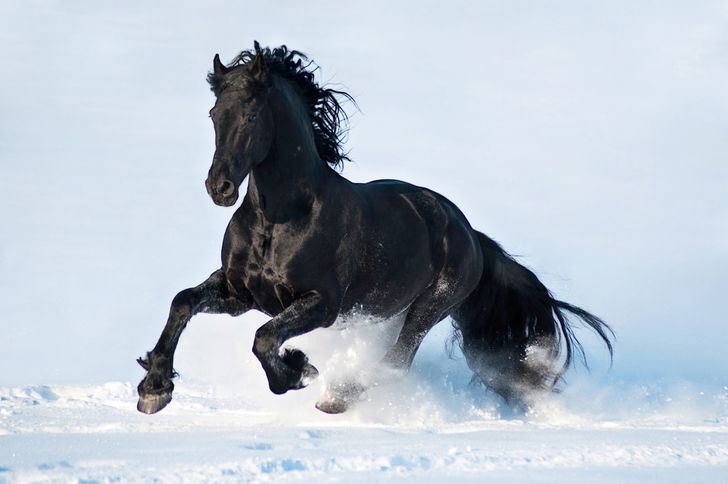Quranic Mentions of Horses: Strength and Biological Efficiency
Throughout history, horses have been revered not just for their strength and swiftness but also for their unique bond with humanity. In the Quran, horses are not only a symbol of power and beauty but also an instrument of divine purpose in warfare, sustenance, and mobility. The references to horses in the Quran invite us to reflect on their biological design and the spiritual lessons they carry for believers. This article explores Quranic mentions of horses, their symbolic strength, and how modern science confirms their biological excellence.
Horses in the Quran: Divine Creation and Purpose
Verses Highlighting Their Role in Battle
The Quran makes direct reference to horses in the context of war and courage. In Surah Al-Adiyat (100:1-5), Allah swears by the galloping horses, describing their speed, power, and role in striking fear into enemies.
Symbol of Power and Wealth
In Surah Sad (38:31-33), Prophet Sulaiman (A.S) admired horses as a blessing from his Lord. These swift, noble animals represented both material wealth and divine favor.
Obedience to Human Command
The Quran subtly points to the horse’s obedience and disciplined behavior, showcasing them as creatures that submit to human command, reflecting the balance of power Allah has given to mankind over animals.
Biological Design: The Horse’s Remarkable Physiology
Muscle Composition and Strength
Horses have a high percentage of fast-twitch muscle fibers, which allows them explosive speed. Their large heart and lungs support high oxygen delivery, especially during galloping.
Efficient Locomotion and Endurance
Horses can run for long distances with minimal energy wastage due to their unique leg structure. The ‘stay apparatus’ in their legs allows them to stand without fatigue.
Digestive Efficiency
Unlike ruminants, horses have a single-chambered stomach but a highly efficient hindgut, enabling them to digest fibrous plant material with remarkable efficiency.
Psychological Bond Between Horses and Humans
Horses and Emotional Intelligence
Horses possess a high degree of emotional intelligence. They can read human facial expressions and respond to emotional cues, forming strong bonds with their caretakers.
Training and Obedience in the Quranic Context
The Quran alludes to the training and obedience of horses, symbolizing discipline in faith. Just as a trained horse submits to its rider, believers are expected to submit to divine guidance.
Therapeutic and Spiritual Benefits
Equine therapy is gaining recognition today. Engaging with horses has been shown to reduce anxiety and depression, suggesting deeper emotional and perhaps spiritual benefits.
Speed, Strength, and Strategic Use in Islamic History
Prophet Muhammad’s (PBUH) Use of Horses
The Prophet (PBUH) utilized horses in several battles, valuing them for their loyalty and resilience. His favorite horse, Al-Murtajiz, was known for its unique neigh.
Companions and Cavalry Units
Many Sahaba trained in horse riding and archery, showing the importance of equestrian skills in early Islamic military success.
Strategic Mobility and Communication
Horses provided unmatched mobility, allowing Muslims to spread the message of Islam across vast lands efficiently and effectively.
Quranic Reflections and Scientific Realities
- Horses’ design aligns with the Quranic description of balance and symmetry in creation.
- Their cardiovascular system is a marvel of biological engineering.
- Quranic references emphasize not just their utility but their nobility.
- Modern science confirms the horse’s energy efficiency and muscular coordination.
The Horse’s Role in Traditional Societies and Modern Therapy
- Historically, horses were critical for transport, agriculture, and war.
- In modern times, they play key roles in therapy for people with autism, PTSD, and anxiety.
- Their intuitive nature helps build confidence and social skills in individuals.
- This evolution reflects the continuity of their value from the Quranic age to today.
Sustainability and Ethical Treatment of Horses
- The Quran teaches kindness towards animals, including horses.
- Ethical care involves proper feeding, rest, and humane training methods.
- Islam forbids overworking or harming horses for personal gain.
- Modern Islamic scholars advocate for animal rights rooted in Quranic principles.
Spiritual Lessons Derived from Horses
- The discipline and obedience of a trained horse mirror a believer’s submission to Allah.
- Their strength serves as a reminder of divine power and the beauty of creation.
- Horses inspire humility, reflecting how strength should be used with responsibility.
- Quranic mentions promote contemplation of life, purpose, and service.
Conclusion
The Quranic references to horses are more than poetic; they are deeply instructive, emphasizing the animal’s strength, loyalty, and purpose in serving mankind. Their biological efficiency affirms the signs of Allah’s perfect creation. At Muhammadan Quran School, we encourage such reflections through our online Quran classes for kids and adults. These sessions offer not just rote learning but spiritual depth, connecting students with the wisdom behind every verse, including those about Allah’s magnificent creatures.











